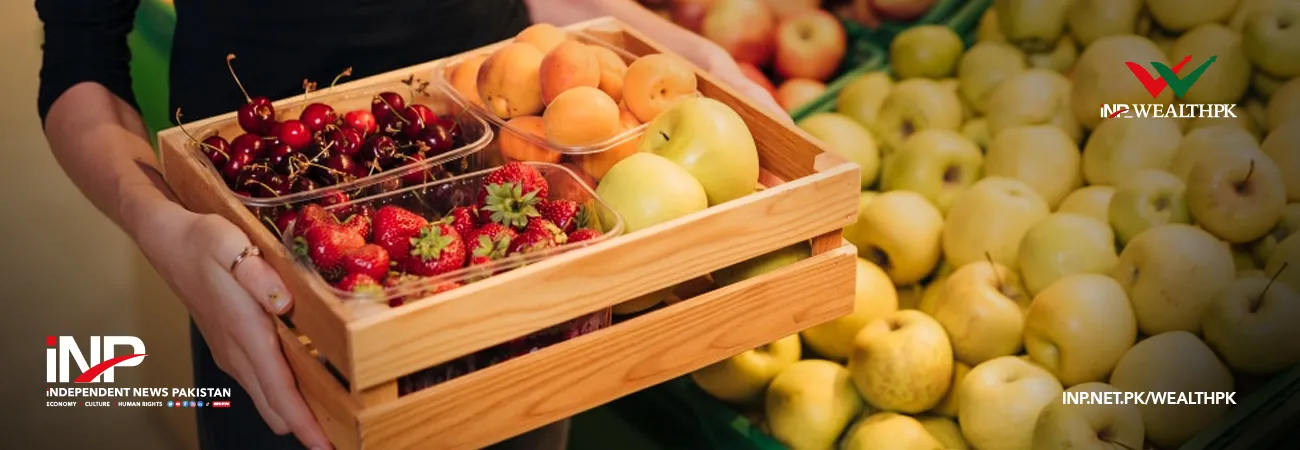INP-WealthPk
Azeem Ahmed Khan
Pakistan’s food imports jumped by over one-third in the first quarter of fiscal year 2025-26, reflecting higher international prices and increased domestic demand for key consumables, including edible oils, milk products and dry fruits, according to official figures.
The total value of food imports rose to $2.25 billion during July-September 2025-26, up 35.56% from $1.66 billion in the same period of the previous year (FY25), official trade figures available with Wealth Pakistan revealed. The share of the food group in total imports also climbed from 11.11% to 13.23%, underscoring the country’s growing reliance on imported food items.
Among major contributors, palm oil remained the single largest import item, with its value jumping to $1 billion, showing an increase of 34.09% from the previous year’s $746.41 million. Palm oil’s import volume also rose 19.76 percent to 953,128 tonnes from 795,839 tonnes, indicating strong domestic consumption.
Imports of soybean oil surged sharply by 91.59% to $56.65 million from $29.57 million, as quantities soared by 70.89% to 52,054 tonnes from 30.460 tonnes. The unit import price of soybean oil also rose 12.11% to $1,088 per tonne from $970.8 per tonne, suggesting both higher international prices and increased domestic demand for the product.
The import of milk and milk-based foods for infants expanded by 32.38% in value to $38.78 million from $29.29 million, with volumes up 10.22% to 13,681 tonnes from 12,413 tonnes previously. The unit value of these imports climbed to $2,834 per tonne, reflecting the impact of global price trends.
Pakistan also imported more dry fruits, with the value increasing by 38.23% to $35.99 million from $26.03 million and quantity up 33.67% to 37,409 tonnes from 27,986 tonnes. In contrast, imports of tea fell slightly by 4.83% to $148.40 million from 155.94 million, despite a marginal increase in quantity. The average import price per tonne of tea dropped to $2,363 compared with $2,486 a year earlier.
Sugar imports jumped sharply to 31,289 tonnes (valued at $18.98 million) in July-September 2025-26 from 993 tonnes ($1.03 million) a year earlier, up 3,051% in quantity and 1,746% in value, while the unit price fell 41.39% to $606.6 per tonne from 1,035 per tonne in the first quarter of FY25. Imports of pulses, a key staple, grew moderately by 8.30% in quantity to 317,232 tonnes from 292,918 tonnes, but the import bill dipped 0.14% to $204.32 million from $204.60 million, helped by a 7.79% decline in unit value to $644 per tonne from $698 per tonne.
Meanwhile, spices imports saw a notable increase of 10.75% in value to $59.14 million from $53.40 million, even though spices quantities slightly dipped by 0.83% to 45,659 tonnes from 46,040 tonnes. The category of all other food items, which includes a range of processed and miscellaneous food imports, rose sharply by 65.96% to $689 million from $415 million, highlighting broad-based growth in food-related import spending. The data underscores Pakistan’s continued dependence on imported food commodities to meet local consumption, a trend that has widened the country’s import bill and added pressure on foreign exchange reserves.

Credit: INP-WealthPk









